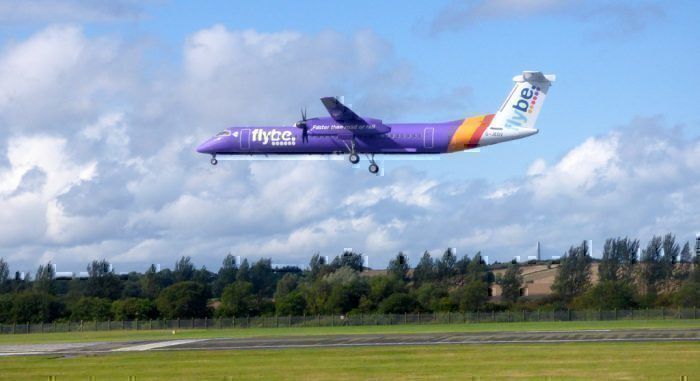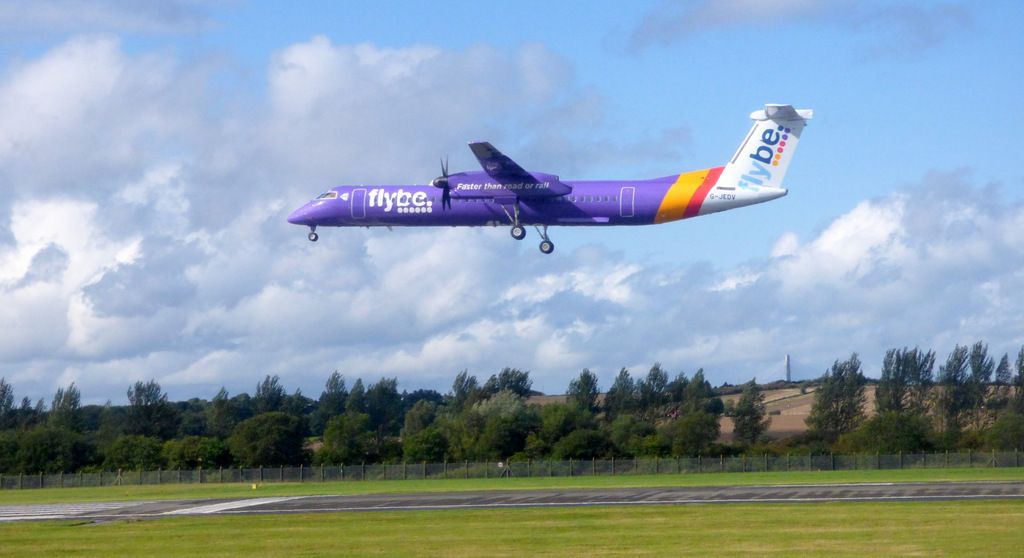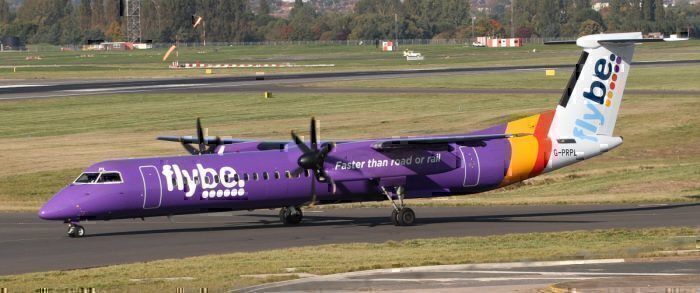Last yesterday, as reported in Simple Flying, Flybe collapsed. The airline was seeking financial assistance from the British government but that failed to materialise. Subsequently, the airline ceased operating in front of passengers about to board flights. The Exeter based airline had carved a niche for itself in the British marketplace. It flew a lot of routes that bypassed London and it flew a lot of routes no other airline serviced. In January 2020, Flybe operated 36% of all UK domestic flights.
The Exeter based airline had carved a niche for itself in the British marketplace. It flew a lot of routes that bypassed London and it flew a lot of routes no other airline serviced. In January 2020, Flybe operated 36% of all UK domestic flights.
A lamentable but unsurprising turn of events
While the collapse is lamentable, it is not surprising. Just a year ago, Flybe was sold to the Connect Airways consortium, which included Virgin Atlantic and Stobart Aviation. The consortium was to have given the airline a fresh cash injection. But it was not enough to save Flybe. For the last two months, speculation has swirled about the future of Flybe.
Yesterday, there was an answer to the speculation.
Flybe grew out of Jersey European Airways, A jersey based airline that flew to key UK airports with a fleet of DC-3s.
Throughout the 1980s and 1990s, the airline changed hands and began using jets, initially British Aerospace 146s. Exeter became an important hub for the airline.
In 1997, Jersey European Airways did a franchise deal with Air France that covered routes from Heathrow to Toulouse and Lyon. It was a brief bountiful time for the airline; capacity and sales grew and profits were being made.
Jersey European Airlines becomes Flybe in 2002
In 2000, the airline rebranded to British European. This was shortlived. The name was shortened to Flybe in 2002 as the airline repositioned to a full service, low fare airline.
Come 2005, Flybe bought a fleet of 26Â Embraer E-195, becoming the launch customer for the type. One year later, Flybe picked up BA Connect. In a stroke, Flybe became Europe's largest regional airline.
In 2008, Flybe signed a franchise agreement with Scottish airline Loganair after that airline's agreement with British Airways ended. The hookup with Loganair was widely viewed as a financial and strategic fiasco. Both airlines lost money on the deal
As that little Jersey-born airline become larger and more complex, it was listed on the LSE in 2010. The listing valued Flybe at approximately £215 million.
A public listing was a turning point for Flybe
This listing was a turning point for Flybe. A public listing brings pressure of its own. There are higher degrees of accountability and there's shareholder pressure to keep growing.
It was the pressure to grow that sent Flybe into a series of corporate and financial transactions over the next decade that ultimately crippled the airline.
In 2011, Flybe bought Finncomm Airlines in a joint venture with Finnair. The new airline was called Flybe Nordic. Flybe sold its stake in Flybe Nordic in 2014 for £1.
Flybe lost money in 2012 and 2013. It made a small £8 million profit after tax in 2014.
But that was a mere precursor to a disastrous 2015 when Flybe lost £35.7. This produced some mixed results. The airline lost a CEO and closed some routes, but the basic recovery strategy seemed to be to grow and expand its way out of financial difficulties.
Starved of funds and a slow decline
Flybe lurched from crisis to crisis over much of the last decade. Its continuing financial problems meant credit card companies wouldn't release funds until after the flight. This added to Flybe's dire cash flow situation.
Today, cardholders who bought upcoming tickets on Flybe may be thanking this policy.
When Flybe was sold to the Connect Airways consortium its shares were valued at 1p each. When the airline floated back in 2010, its shares were valued at 295p each.
Despite having new owners, the difficulties continued for Flybe. The airline had been seeking aid from the British government, a move that angered many competitors. In the end, the government declined to assist. Fair enough - a private business needs to live or die on its own, without state aid.
But that doesn't help many regional cities and their populations where Flybe was the dominant player.
What do you think? Should the British government have bailed out Flybe? Post a comment and let us know.


